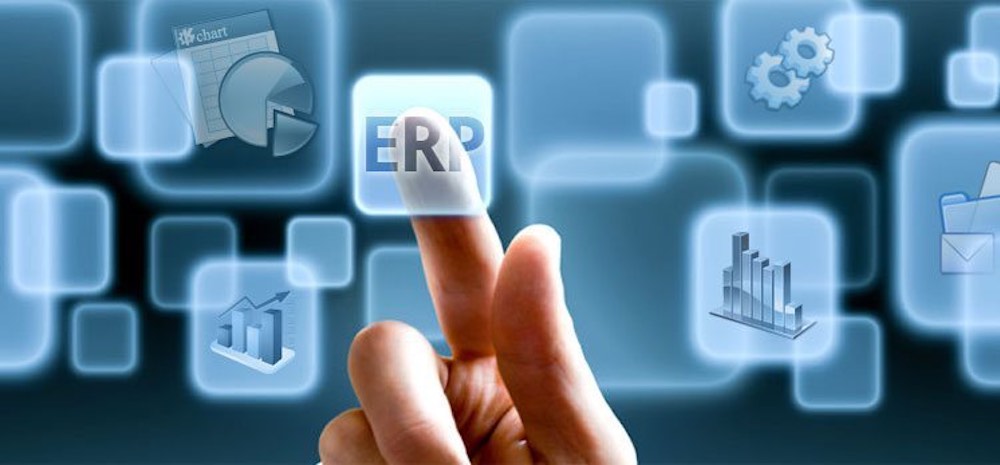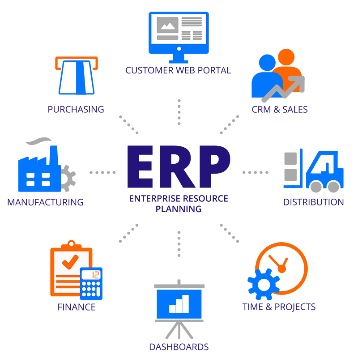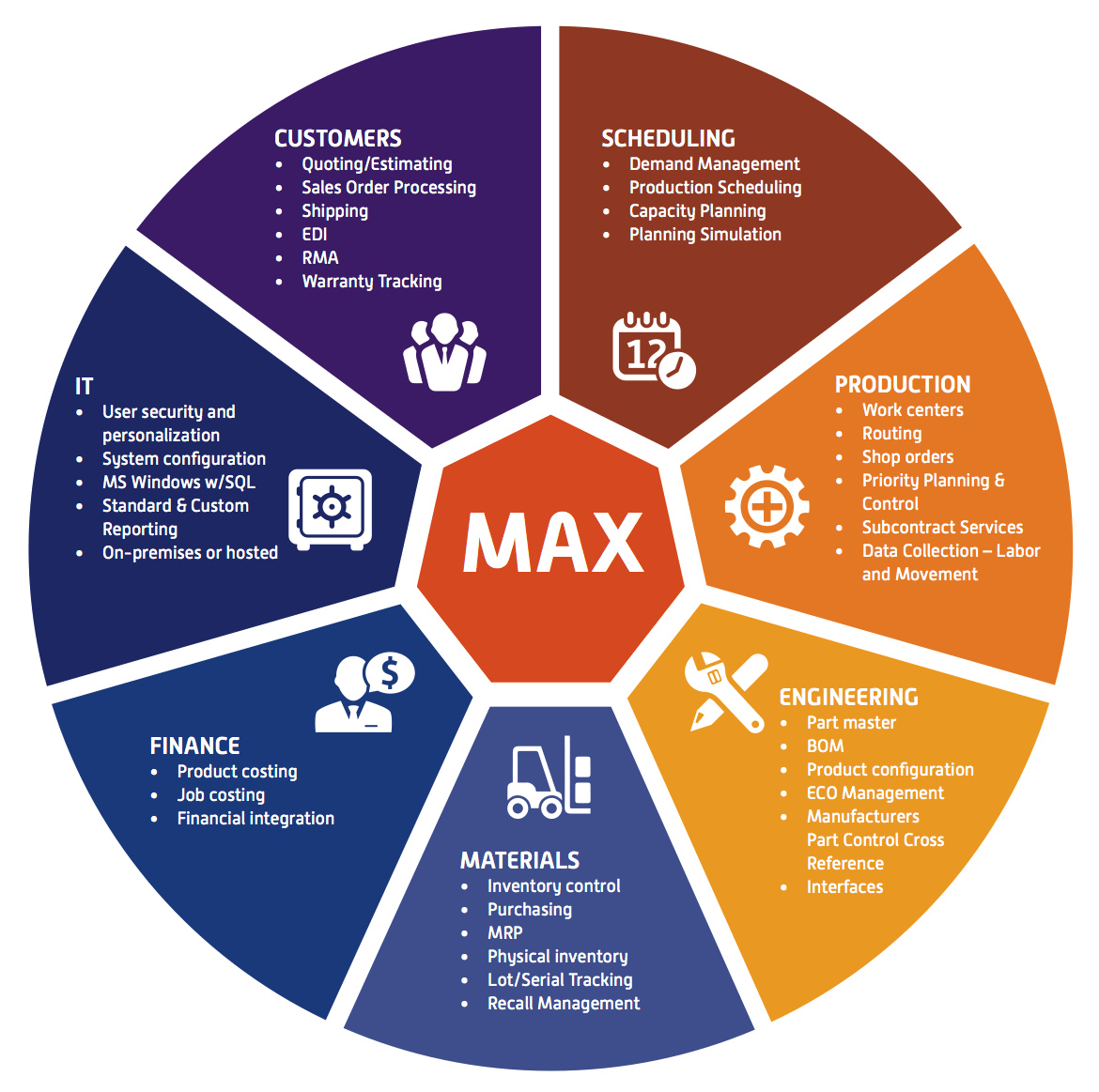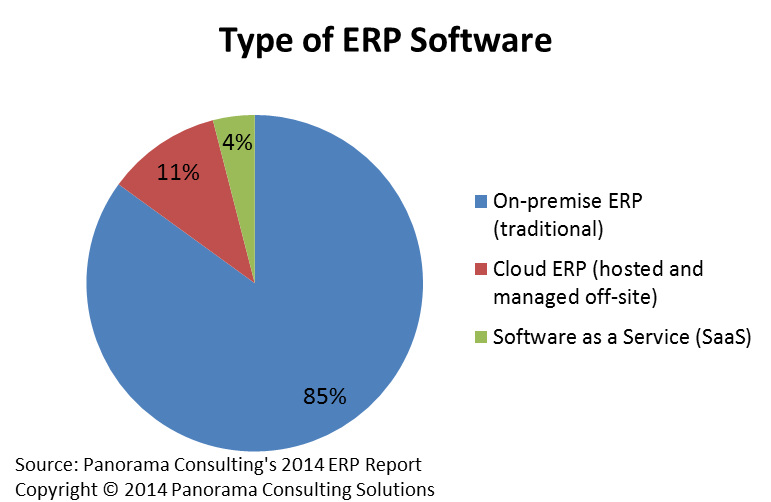Deciding Between Web App Based ERP & Mobile App Integrated ERP
Investopedia defines ERP as a process by which a company (often a manufacturer) manages and integrates the important parts of its business.

Steven Scott, author of “Control your ERP Destination” said,
“The truth is, no organization plans to fail rather, they fail to plan!”
As businesses are expanding on unprecedented scales and volume of revenues are growing exponentially, managing data has become the major issue.

Different departments in a company can no longer work in isolation rather data needs to be shared and routed from one end to the other.
In a world of chaos, ERP is enabling this in an organized manner.
Contents
What Is ERP?
ERP stands for Enterprise Resource Planning. Investopedia defines ERP as a process by which a company (often a manufacturer) manages and integrates the important parts of its business.
In simple terms, ERP is a binding factor for different computer systems across a large organization. It keeps together areas like planning, purchasing, inventory, sales, marketing, finance and human resources.
Why ERP?
ERP has started gaining immense popularity in recent years as people realize it’s potential.
ERP acts as the central nervous system for an organization. Data can be added and obtained from it in real time.

Sharing data across different departments helps to validate it. ERP is majorly implemented to identify the key performance indicators(KPI).
Types Of ERP
There are many types of ERP software packages available. ERP software range from Mobile app based ERP to Social ERP to Cloud based ERP etc.

Large vendors like SAP, Oracle, Sage etc. can provide customized ERP software packages according to the company’s need.
Web App Based ERP Or Mobile App Integrated ERP?
Web app based ERP and mobile app integrated ERP are the two most common choices and are similar in major aspects.
These software packages are gaining popularity because they are cheaper, easier and quicker to implement.
The company pays a rental fee as a client and as a result, no installation charges are involved. This results in low upfront costs. It can be cloud-based depending on the client requirements. It is also called, Software as a Service (SaaS) offering.
However, over a long period, the sum of monthly rents can be more expensive than in-house installation of the software. This is the major disadvantage of rent based service.
The difference boils down to how it is accessed. If web browsers are used, it becomes web-based ERP while an app developed specifically for ERP system is a part of mobile app integrated ERP.
Which One To Choose?
Choosing between the two requires analyzing conditions of operation. Points of differentiation can be summarized as:
- App integrated ERP is more useful when major data flows through personal devices while if greater standardization of data is seen, web-based ERP is preferred.
- Web-based ERP requires simpler system configuration and no major system upgradations may be required. App integrated ERP requires improved technology.
- This translates to easier deployment in case of web-based ERP as compared to mobile app integrated ERP.
- But when it comes to bringing updates, mobile app integrated ERP is easier to work with.
- GRC (Governance, risk management, compliance) is emerging parallel to ERP and will soon probably merge with it or complement it. Mobile app integrated ERP is more compatible with GRC due to ease of updating.
- Data security is ensured with both ERP packages. Developers have begun working in a sandbox which ensures safety. However mobile app integrated ERP are more prone to cyber-attacks.
Future Of ERP Software Packages
Businesses have begun realizing the importance of digitizing data and storing it.
As technology makes advances and becomes more affordable for the small enterprises, greater acceptability can be predicted.
About the Author: This article is contributed by Amit Dua – Co-Founder & CEO at Signity Solutions and ValueAppz.
